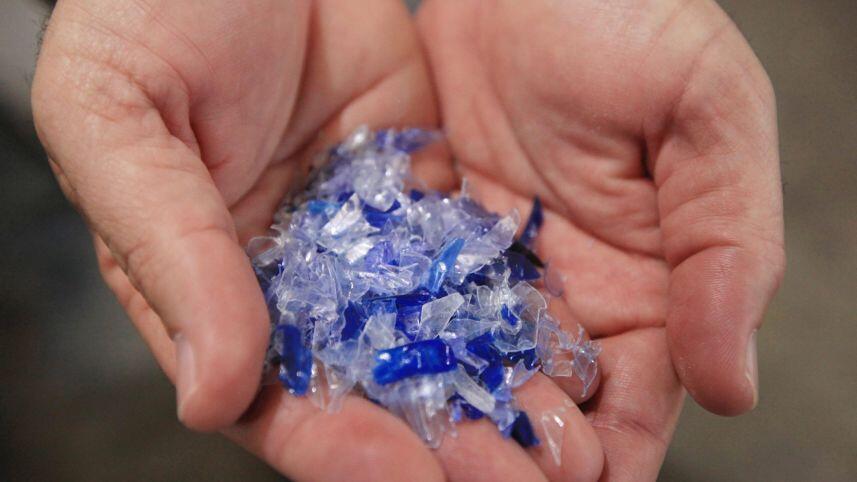Israel’s only plastic bottle recycling plant is about to close and has already cut down on its number of employees and their work days. The Knesset Finance Committee has asked the Finance Ministry to assist the ailing factory, Aviv Recycling Industries, but so far the ministry has declined.
Aviv Recycling was established 25 years ago in the Neot Hovav industrial zone in the Negev and until recently employed 70 workers. It takes plastic bottles that have been collected for recycling and grinds them into pellets that are used as raw materials for various products. The bottles are collected by two companies, which operate according to the law on package recycling and deposits on drinking containers.
In recent years Israel has been exporting ever-growing quantities of used plastic bottles to other countries, first and foremost Turkey, a move that has made it very difficult for Aviv show a profit. “We can’t compete with the cost of labor in countries like Turkey, which are much lower than here,” said Yaron Mizrahi, head of the Aviv Recycling. “In addition, these are factories that, unlike ours, are not required to use various means of avoiding damage to the environment, which makes our costs even higher.”
Another blow to the recycling industry is the declining cost of raw plastic, which has brought down profitability. As a result, the factory has had to let go half of its workforce and halt half of its production.
Exporting plastic for recycling can hurt the environment in several ways, among them the environmental cost of transporting them long distances using polluting fuel and emitting greenhouse gases during transport, while less stringent standards of waste treatment can mean more environmental damage. Another problem is the negative message conveyed to the recycling industry in Israel. That industry was established for long-term goals and a variety of recycling activities; it might not always be profitable to export plastic, yet Israel could find itself dependent on such export.
Three weeks ago the Knesset Economics Committee met to discuss Aviv Recyling at the behest of lawmakers led by Mickey Levy (Yesh Atid). After the discussion, committee chairman Moshe Gafni (United Torah Judaism) asked the ministers of finance, economy and industry and environmental protection for help.
Seeking state subsidy
Gafni suggested that assistance could come from the cleanup fund administered by the Environmental Protection Ministry. Local councils pay into that fund for using landfill services, and the money is supposed to be earmarked for environmental purposes, including recycling. Gafni also suggested that a fund administered by the Economy Ministry for industries in financial trouble could be called on.
“I believe that the function of these funds is to help in precisely such situations when an important industry is in danger of closing, leading to the firing of 70 employees,” Gafni wrote. During the meeting, representatives of the Environmental Protection Ministry said they had approached the directors of the cleanup fund for money to help Aviv, but the Finance Ministry turned them down.
The Finance Ministry said a proposal had been made to Aviv to receive an investment grant to improve the assembly line, but Aviv had refused to accept it, even when the grant offered was increased.
“We need direct help over a long period,” Mizrahi said in response. “The law on packaging recycling, which states that the recycling will be done in Israel, must be implemented. Today they are exporting most of the bottles and the Environmental Protection Ministry calls that recycling,” Mizrahi added.
A few months ago, the Industrialists Association published a report on recycling industries, prepared by the environmental engineering company Afik, in cooperation with Dr. Yossi Inbar, director general of the Environmental Protection Ministry. According to the report, most of the recycling facilities in Israel are not classified as industrial enterprises eligible for grants according to the law governing investments in industry, because they don’t produce a product, but rather give a service.
“In a great many cases, this assumption is not precise because there is a market for recycled products,” the report said. The report also recommended that the cleanup fund channel some of its resources to assist recycling industries.
Source: http://bit.ly/2vvDdEm











